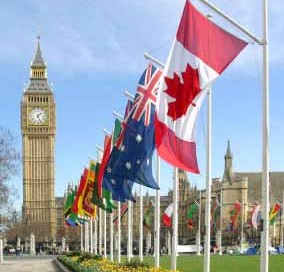
On October 21, 2019, a federal government will be elected to serve Canadians and represent their interests in making decisions about what laws and policies will govern. All Canadian citizens 18 years and older have the choice and the right to vote which is guaranteed by Canada’s Charter of Rights and Freedoms – the foundation of Canadian democracy. When individuals are not informed of their right to vote, are denied the opportunity to vote, or don’t have access to a vote, the government loses its legitimacy and the democracy is undermined.
Evolution of the Right to Vote in Canada
Canada has been a democracy since Confederation in 1867 at which time the right to vote was restricted to property-owning men over the age of twenty-one of a limited national background and religion. Women, aboriginal people, and other individuals fought hard for their right to vote, protesting and challenging the denial of their rights in the courts for decades.
Under the Dominion Elections Act, only persons who had the legal right to vote in a provincial election could vote in a federal election, which excluded immigrants from Japan, China and India. Although these restrictions were challenged over the years, it was not until the repeal of the Dominion Elections Act in 1948 that the right to vote was extended to Canadians of Asian origin.
While women won the right to vote in some provinces as early as 1916, it was not until 1920 when the federal government made the right to vote “universal”, that they obtained the right to vote in federal elections but, even then, the right was still out of reach for aboriginal persons and some minorities.
The right to vote in federal elections was denied to aboriginal persons until 1960.
In 1970, the voting age was lowered to eighteen. And, finally, in 1982, the passage of the Charter of Rights and Freedoms embedded into the Constitution the right of all Canadian citizens to vote. That was only thirty-seven years ago.
Further changes to eligibility rules followed in the years following the passage of the Chapter of Rights and Freedoms opening up the right to vote to persons with mental disability in 1993 and all prisoners in 2002. With the introduction of the Canada Elections Act persons of no fixed address became eligible to vote without having to provide proof of address.
Much progress has been made however past years of Canadian history surrounding the civil right to vote remind us of Canada’s past treatment of women, minorities and aboriginal persons. Although suffrage is enshrined on paper, more work is needed to ensure universal access to vote, which can be a challenge for elderly, disabled and other individuals. For people with physical disabilities, for example, full access was guaranteed only in 1992 when the architectural accessibility of polling stations became mandatory.
The process of securing full access to the right to vote is ongoing and includes the employee’s right to vote during working hours, when necessary.
Employee and Employer Rights and Obligations
One way in which voting access is addressed is in the statutory obligations of employers toward their employees to allow them to carry out their right to vote.
The voting hours vary from time zone to time zone, and although many employees are able to do so outside of their working hours some may require additional time off work to exercise their right. Although the employer is entitled to determine when the hours will be provided, the employee MUST be provided with three consecutive hours off work during which time the polls are open and without any loss of pay.
These 3 consecutive hours can be provided before the employee’s usual starting time, after their usual ending time, or by allowing them to come in to work late or leave work early, if necessary. For example, if the employee is ending their shift at 7:00 p.m. and the poles are closing at 9:30 p.m. the employee would need to be allowed to leave at 6:30 p.m. to ensure they have had an opportunity to vote. Employers should be aware that if they fail to provide the three consecutive hours or if they make any deductions from an employee’s wages, they can be fined up to $2,000.
As the campaign winds down, we remind employers of their obligations and employees of their rights to vote in the upcoming federal election. Regardless of your choice, it is a right not to be taken for granted by both, employers and employees.
Helpful links:
Canada Elections Act (Justice Laws website)
